Epsilon Theory PDF Download (paid subscribers only): Facebook Delenda Est
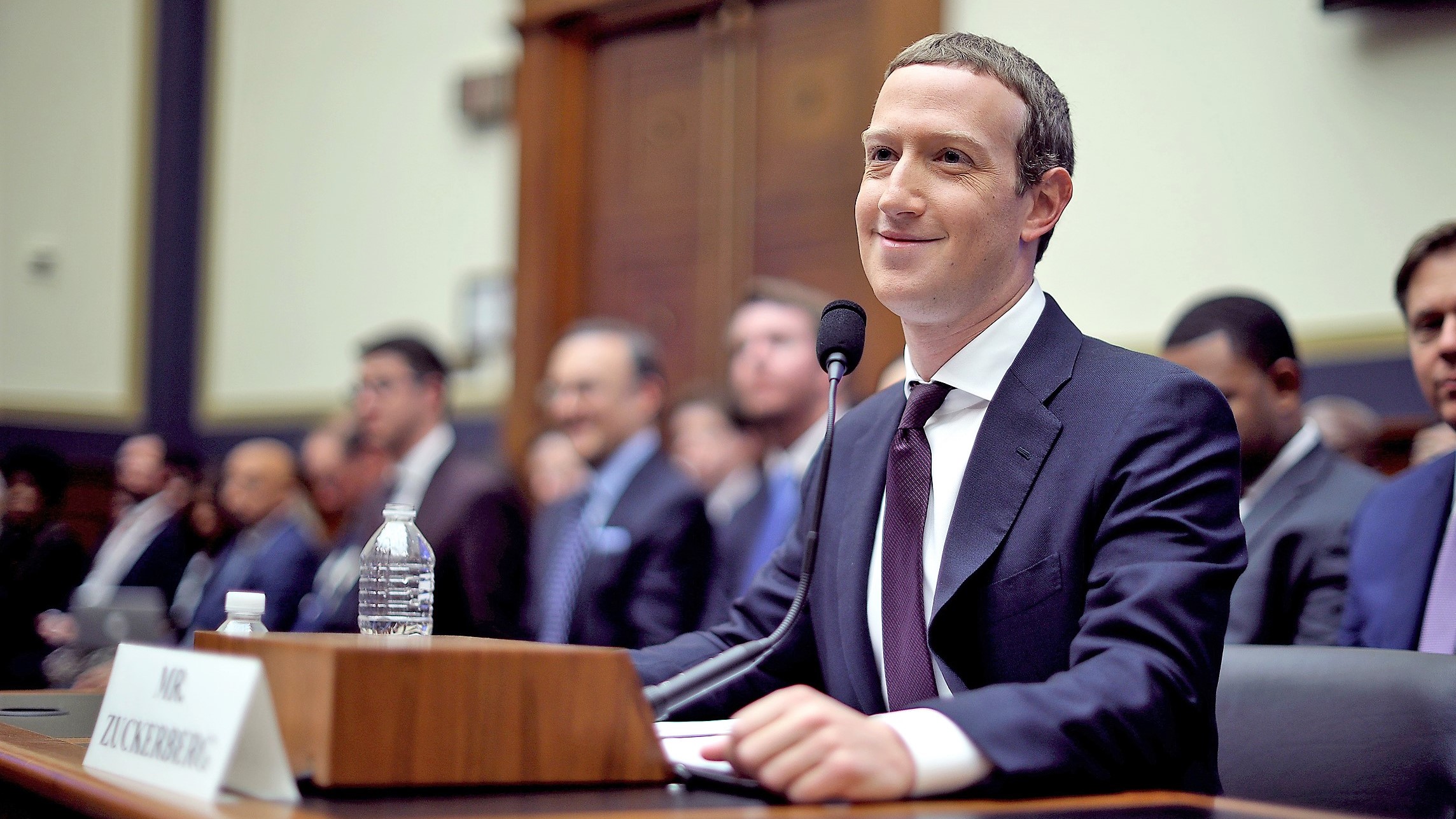
Trump hosted Zuckerberg for undisclosed dinner at the White House in October (NBC)
“President Donald Trump hosted a previously undisclosed dinner with Facebook CEO Mark Zuckerberg and Facebook board member Peter Thiel at the White House in October, the company told NBC News on Wednesday.
Zuckerberg also gave a speech at Georgetown University the week before, detailing his company’s commitment to free speech, and its resistance to calls for the company to crack down on misinformation in political advertisements.
It is unclear why the meeting was not made public or what Trump, Zuckerberg and Thiel discussed.
The White House declined to comment.“
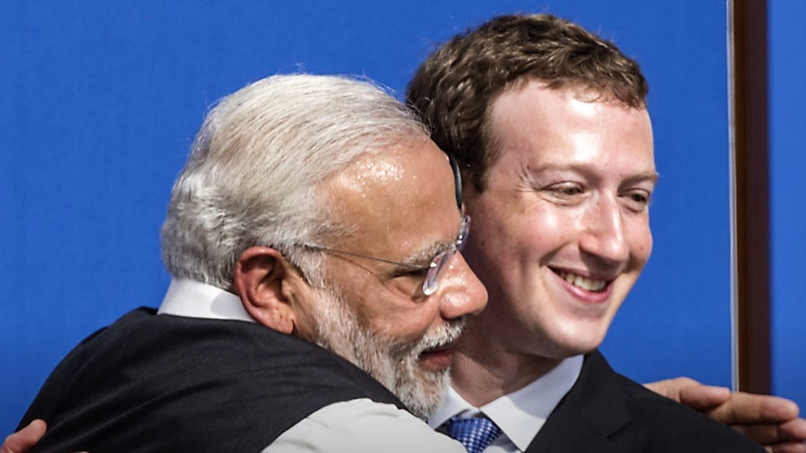
Facebook’s Hate-Speech Rules Collide With Indian Politics (WSJ)
“The company’s top public-policy executive in the country, Ankhi Das, opposed applying the hate-speech rules to Mr. Singh and at least three other Hindu nationalist individuals and groups flagged internally for promoting or participating in violence, said the current and former employees.
Ms. Das, whose job also includes lobbying India’s government on Facebook’s behalf, told staff members that punishing violations by politicians from Mr. Modi’s party would damage the company’s business prospects in the country, Facebook’s biggest global market by number of users, the current and former employees said.“
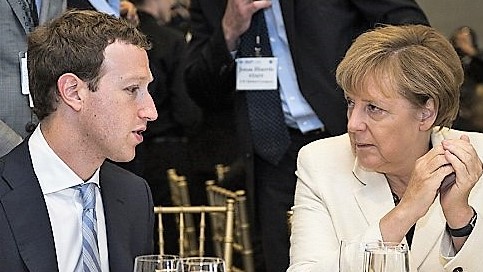
Facebook’s Zuckerberg promises Merkel action on hate speech (Deutsche Welle)
“Facebook founder Mark Zuckerberg on Saturday promised German Chancellor Angela Merkel that his company would work on measures to combat racist and hateful comments on the social media platform.
This comes after German Justice Minister Heiko Maas met with Facebook representatives in Berlin in mid-September following the posting of a number of right-wing extremist and racist comments about refugees.
Maas had expressed bewilderment that photos considered to be indecent were quickly deleted, while hate speech postings were often left on Facebook pages even after users had complained. Merkel had also called on the company to take measures to fight mass incitement.”
So … I’m pretty close to being a free speech absolutist. Or at least I have an old-school small-l liberal John Stuart Mill-esque belief in free speech, with an extremely high bar for the “harm” that speech must directly inflict on other citizens before a rightfully constituted government, based on the consent of its citizens, has a legitimate duty to regulate that speech.
And I believe that the US Supreme Court has been pretty much spot-on with its free speech decisions like Brandenburg v. Ohio and R.A.V. v. City of St. Paul, where they said (roughly speaking) that even speech calling for violent protest against the government is protected speech and that hate speech isn’t a thing. Let me repeat that last one. The US Supreme Court has repeatedly held that hate speech is not a thing.
I think this is exactly right.
To be clear, I also believe that a private organization has the right to apply hate speech standards (or any other speech standards) to its members, if those members have the ability to leave the private organization AND that organization does not enjoy unique government support. So, for example, if I choose to attend a private religious college, and they have rules against hateful/blasphemous speech, then it’s fine for them to kick me out when I start doing my hateful blasphemous speech thing. I’d never go to that college in the first place, and there are plenty of other schools I can attend. But if ALL colleges started imposing hate speech standards, or if the ONLY college started imposing hate speech standards, or if ANY public college started imposing hate speech standards … well, I’d have a real problem with any of these circumstances.
And I believe that a just government has a duty to intervene in these circumstances.
Now I also believe that the US Supreme Court got it terribly, terribly wrong with Citizens United, where they decided (again, roughly speaking) that non-real life citizens – like corporations or other constructed legal entities – enjoy the same protections for political speech that real life citizens do. I’ll repeat that one, too. The US Supreme Court has held that constructed entities of pooled capital (corporations) or pooled labor (unions) or pooled political influence (parties) have the same protection for their political speech as unconstructed/unpooled you and unconstructed/unpooled me.
I think this is nuts.
To be clear, I also believe that limitations on how much money or time real life citizens can spend on their political speech are similarly nuts. So, for example, I believe that really rich American citizens like Bill Gates or Jeff Bezos or George Soros or Charles Koch can spend as much money as they please – literally billions of dollars if they want – to proclaim whatever cockamamie political idea they want to proclaim. What is unacceptable in my view – but is exactly what Citizens United allows – is for really rich guys to spend unlimited amounts of money on political speech after they are dead, or (worse!) for corporations and unions and parties to spend unlimited amounts of other people’s money on political speech, with the same legal protections as real life citizens.
Government does not exist to protect the rights of a dead rich guy’s money. Government does not exist to protect the rights of corporations, unions and political parties. Government EXISTS to protect the unalienable rights of its citizens, and that among these are life, liberty and the pursuit of happiness.
Do foundations and corporations and unions and political parties have rights? Do they enjoy the protection of our laws? Of course!
Can foundations and corporations and unions and political parties speak on the issues of the day? Sure!
But foundations and corporations and unions and political parties are conveniences, not citizens. They exist because they are useful efficiencies, not because they possess unalienable rights. They are not the same as voting citizens, and a government of the people, by the people, and for the people is under zero obligation to extend the same protections to the political voices of these non-people as it must to its actual people, much less MORE protections.
But that’s where we are today.
These non-people … these non-citizen, non-voting, artificially constructed legalistic entities of pooled capital, labor or influence … they enjoy MORE free speech protections than you and me.
And I believe that a just government has a duty to do something about that, too.
Now if you don’t mind, please hold those two thoughts …
1. Ben doesn’t think that hate speech is a thing. Ben also thinks there are (limited) circumstances where a just government must reach into private organizations to prevent them from applying hate speech standards.
2. Ben doesn’t think that constructed entities like foundations and corporations and unions and political parties should enjoy the same free speech protections as real life citizens. Ben also thinks – and this is at the heart of what he wants to BITFD – that these constructed entities actually enjoy far more free speech protections from our government than the real life citizens our government was established to protect.
… and let’s talk for a minute about Facebook.
The following facts are, I believe, not contentious. They are, I believe, clear and obvious facts to any observer of Facebook policy in the three markets that are most important to Facebook – the United States, India and Europe.
Fact #1: Facebook has constructed a standard of what they consider to be political hate speech and announced that they intend to apply it on their platforms within the United States, India and Europe.
Fact #2: Facebook applies this hate speech standard with rigor and unswerving attention against specifically the group who (IMO) should never have a hate speech standard applied against them … individual, real life citizens of the United States, India and Europe.
Fact #3: Facebook does NOT apply this hate speech standard with rigor and unswerving attention against the group who (again IMO) might well have a hate speech standard applied against them … powerful non-citizen entities of pooled capital/labor/influence both internal and external to the United States, India and Europe. In fact, the more powerful the non-citizen entity of pooled capital/labor/influence might be over Facebook’s business model, the more Facebook turns a blind eye to any violation of the hate speech standard by that entity and the more Facebook cracks down on any violation of the hate speech standard by that entity’s political opponents … particularly the small and helpless ones.
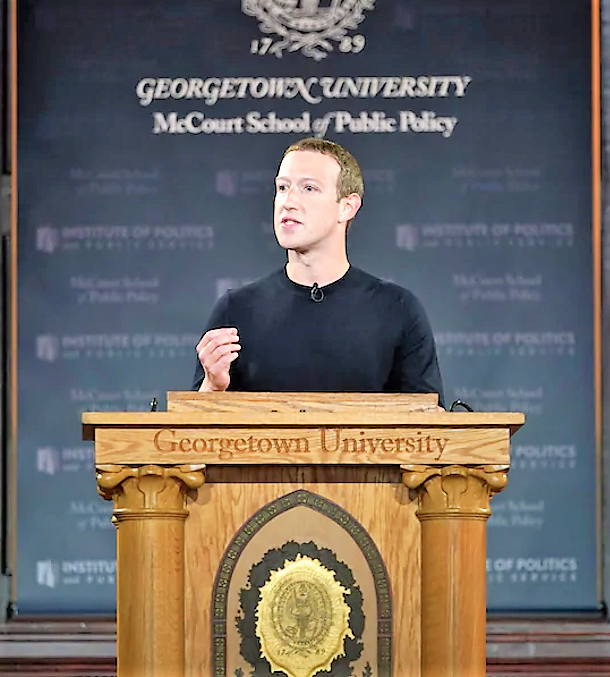
Sure, the Facebook hate speech policy is all wrapped up in powerful narratives of “Yay, Science!” and “Yay, Democracy!” and “Boo, Terrorists!”, and sure, Mark cleans up real nice when he goes to Georgetown and name drops Elijah Cummings, Frederick Douglass, #BlackLivesMatter, #MeToo, Air Force moms, the war in Iraq, and Martin Luther King Jr. (I am not making this up) all within the space of a few paragraphs in his speech, “Zuckerberg: Standing For Voice and Free Expression“.
That’s the actual title of his speech, as provided by Facebook to the Washington Post, where they published it verbatim: “Zuckerberg: Standing For Voice and Free Expression”. You know, just in case you weren’t sure what Cartoon Mark was trying to project. Again, I am not making this up.
But in truth, this is all just Free Speech Theater.
Facebook is not a content-delivery platform. Its business is not to “give people voice and bring people together”, as Zuckerberg says in his best cartoon voice.
Facebook is an advertising-delivery platform.
Facebook’s business – its entire reason for being – is to sell as many ads as possible based on free, user-generated content. Contentious, inflammatory user-generated content is great for selling ads – particularly if it IS an ad – but the content can’t be so contentious that it generates a popular backlash, reducing demand/usage, or that it makes the ruling powers-that-be angry, generating a fine or some other profit-reducing regulation.
THAT’S the algorithm that Facebook is trying to solve. THAT’S the determining constraint on Mark Zuckerberg’s “commitment” to free speech.
In every crucial jurisdiction where Facebook does business, Mark Zuckerberg meets privately with the chief executive of that market and works out a political accommodation.
What’s your biggest “free speech” concern [wink, wink], Mr. or Mrs. Chief Executive, and how can Facebook tailor its policies to help you out?
- In the United States, Zuckerberg has dinner with Trump. Amazingly enough, Facebook does not apply its “fact-checking” or “hate speech” controls to political ads.
- In India, Zuckerberg has dinner with Modi. Amazingly enough, Facebook does not apply its hate speech controls to prominent members of the ruling BJP party.
- In Germany, Zuckerberg has dinner with Merkel. Amazingly enough, Facebook expands its hate speech controls to shut down and marginalize content critical of German refugee and immigration policy.
And in return, across all of these crucial markets, Facebook enjoys unique government support for a communications and social media platform – Facebook, WhatsApp and Instagram – that is impossible for a US citizen or an Indian citizen or a German citizen to escape.
And that’s the rub.
Swearing off Facebook/WhatsApp/Instagram is no solution here. There is no meaningful way to opt out of a ubiquitous and universal communications and social media platform, because the system of a ubiquitous and universal communications and social media platform is impervious to your individual decision. It’s like saying that you’re going to opt out of Covid-19. Sure, you can move off the grid into the Alaskan wilderness and not get sick. Knock yourself out. But that’s not a meaningful definition of opting out. Barring that sort of absurd action, however, your exposure to the virus, whether it’s the virus of SARS-CoV-2 or the virus of Facebook/WhatsApp/Instagram, isn’t so much dependent on your actions as it is on everyone else’s actions.
These are the conditions under which a just government must reach down into a private organization like Facebook and turn their pernicious hate speech standards completely on its head.
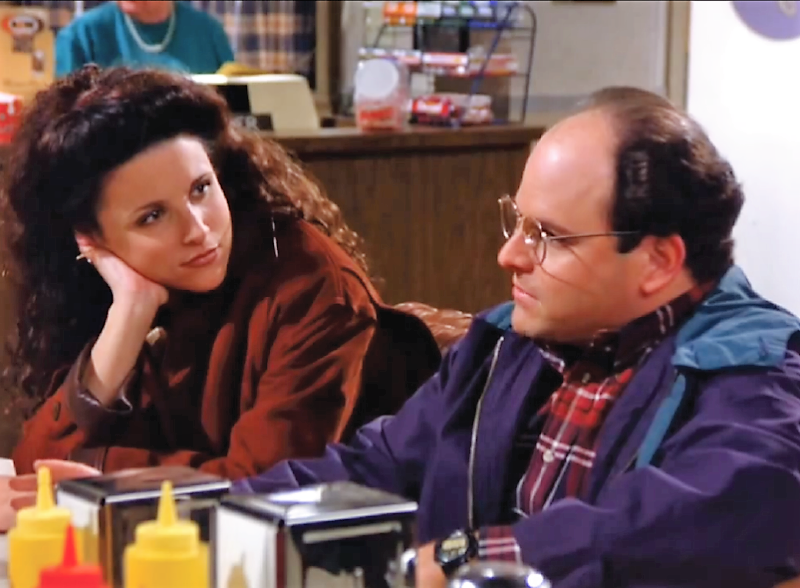
Which leads us to the George Costanza legislative fix for Facebook.
Like George, every instinct that Mark Zuckerberg has regarding free speech is wrong, and so Facebook should be required by law to do the exact opposite of what they’re doing today.
Specifically, that means that it is precisely the slick political ads and user-generated content from non-real life citizens like corporations, unions and political parties that Facebook should scrutinize carefully and hold to some fact-checking and hate speech standard. It is precisely the gross and insulting and hateful and mean-spirited user-generated content from real life citizens that Facebook should let slide.
I know. LOL. There’s a snowball’s chance in hell that any legislative body in the world would ever pass this sort of law. But a guy can dream, right?
Barring this sort of legislative fix to the core Facebook business model, the only other solution I see is to tear down Facebook on antitrust grounds, by which I mean force Facebook to divest WhatsApp and Instagram (Messenger, too), and maybe hive off the Indian and European operations from the US mothership. Over time – over a LOT of time – I think that this sort of Ma Bell solution could maaaaybe weaken core Facebook to the point where users have a real choice in what communications and social media networks they use, making Facebook’s hate speech standards no less pernicious but allowing a true opt-out. But I’m not holding my breath on this solution, either.
It’s frustrating.
We can see so clearly how Facebook is undermining our democracy and our most integral political rights.
We can see so clearly how Facebook has bought and paid for political cover at the highest levels of American, Indian and European government, political cover that prevents any of the actions we might take as a society to rid ourselves of this cancer.
What do I mean when I say BITFD? What is it that I want us to burn the fuck down?
This.
This system of bought and paid for political patronage that companies like Facebook use to Nudge us into social ruin.
More than 2,000 years ago, the renowned Roman soldier and orator Cato the Elder would end every speech, regardless of topic, with the phrase Carthago delenda est … roughly translated, Carthage must be destroyed.
It wasn’t that Carthage posed an imminent threat to Rome. No, Rome had already defeated Carthage soundly in two wars, and Carthage was no longer a competing empire but merely a wealthy city. It was the idea of Carthage as an alternative to traditional Roman principles that Cato believed was so dangerous … the potential of Carthaginian wealth and business prowess to subvert Rome from the inside through law and custom that Cato believed had to be stopped.
It’s exactly the same thing with Facebook.
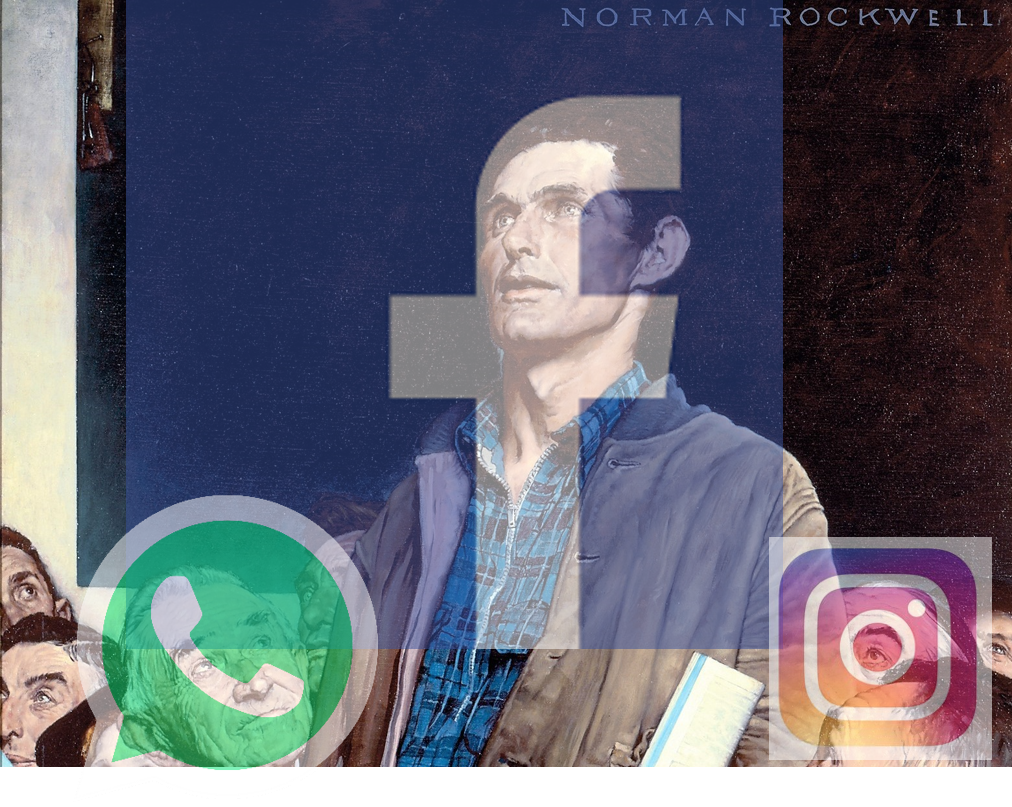
Mark Zuckerberg’s idea of free speech and its proper limitations – where “hate speech standards” are rigorously enforced when it comes to individual citizens and conveniently set aside when it comes to the most powerful entities of pooled capital/labor/influence in our society – is a profound threat to liberal democracy, whether that’s in India, Europe or the United States.
Not because it competes with us from the outside. Not because it presents itself as a competent external alternative. Facebook is not China.
But because it subverts our most important principle of representative government – the free expression of a citizen’s political views – from within.
Facebook delenda est.
BITFD.
Epsilon Theory PDF Download (paid subscribers only): Facebook Delenda Est

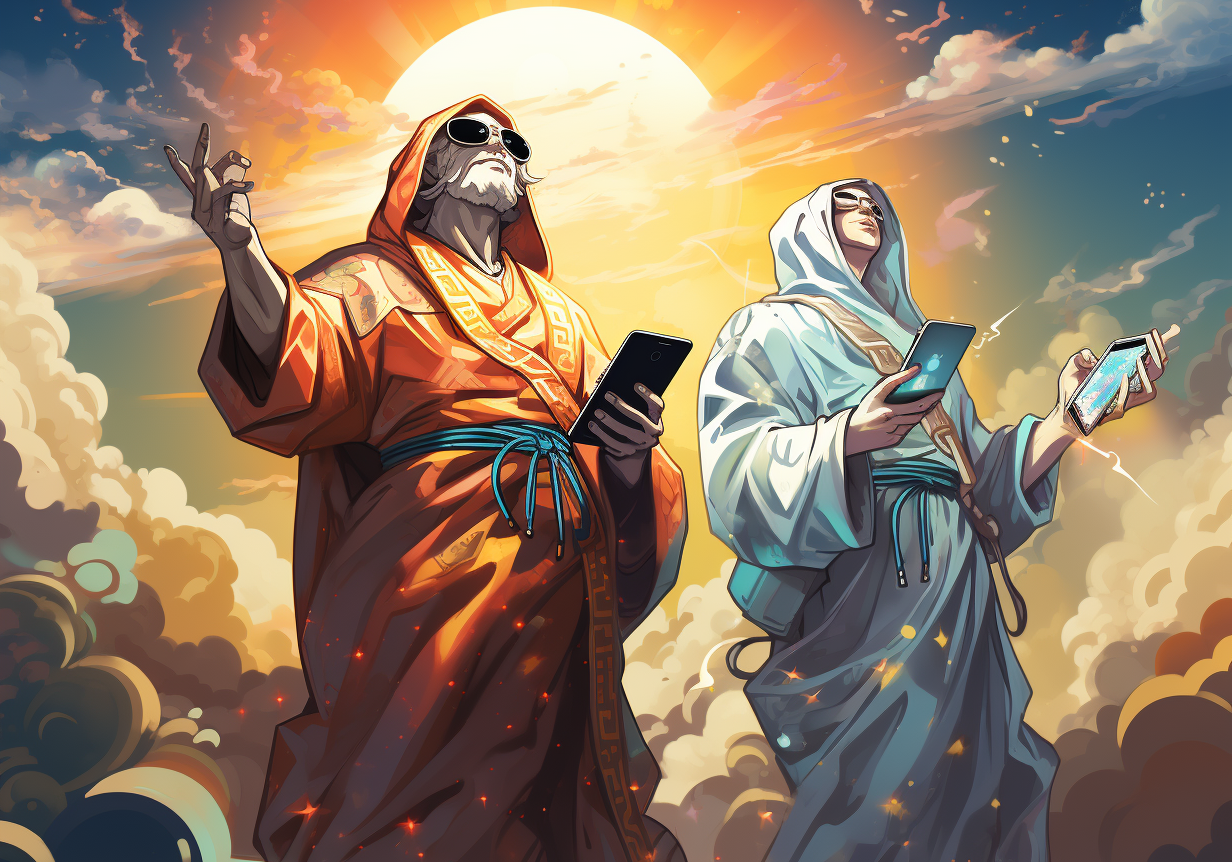



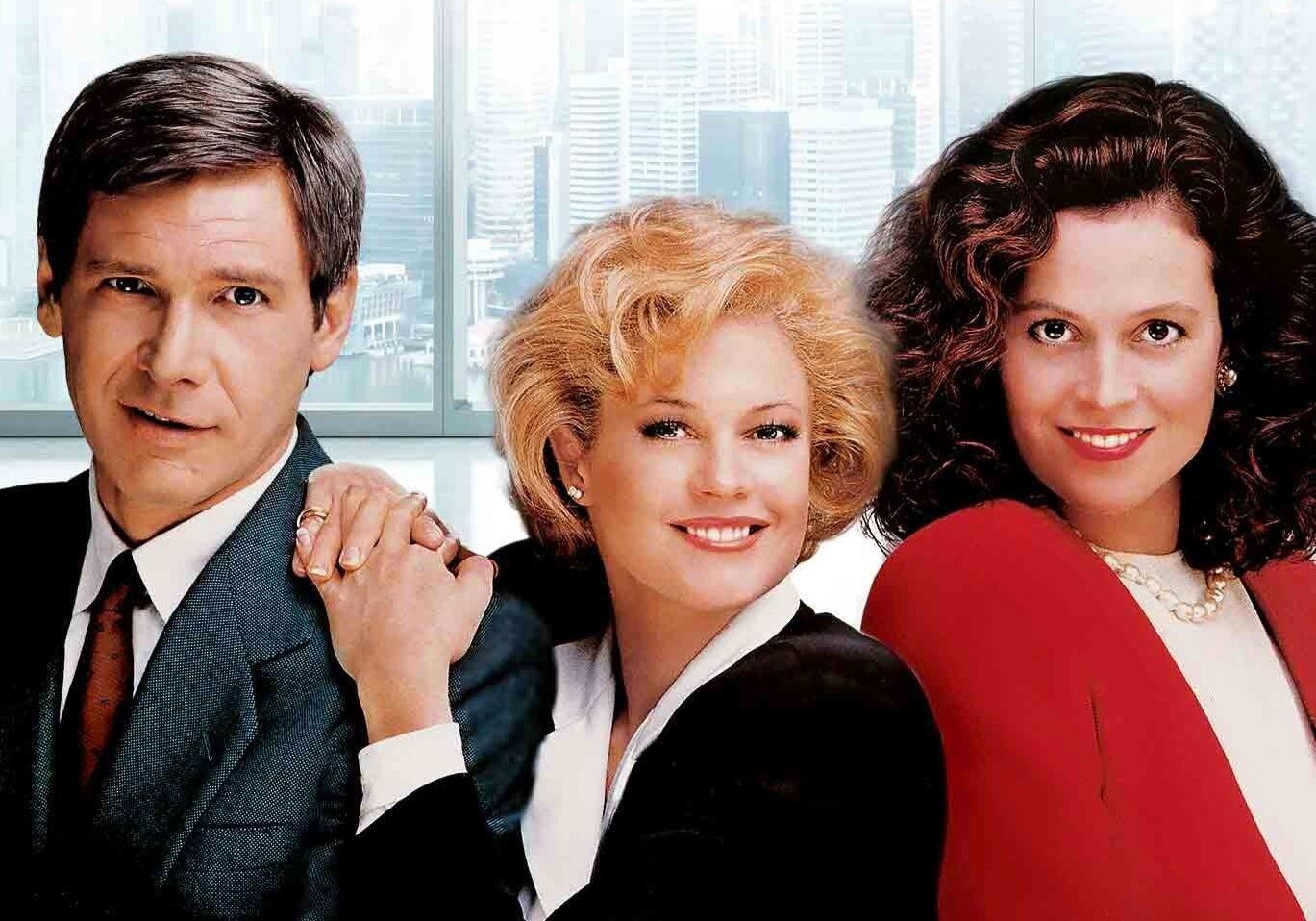

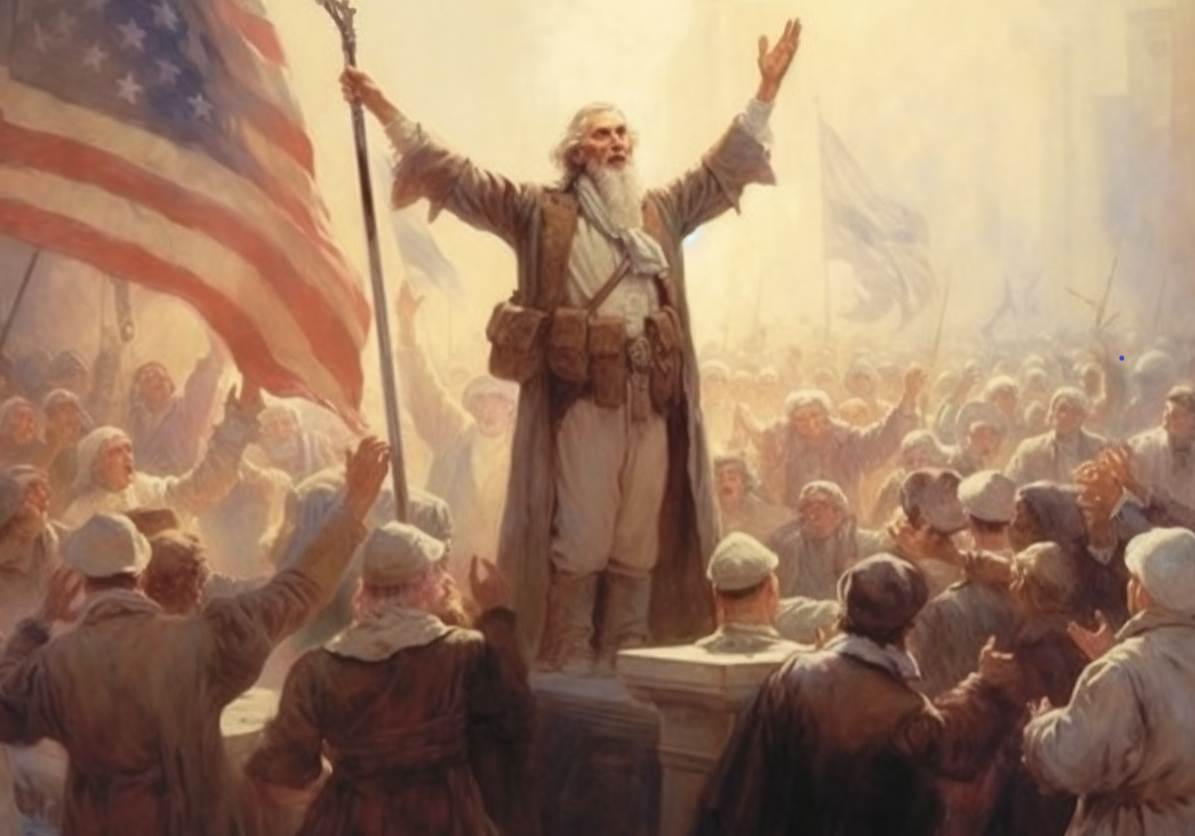


Appreciate this post Ben, it’s helped clarify for me how to think about this. I have had people in other countries - Cambodia in particular - tell me that Facebook’s network has given them an effective way to organize against a dictatorial government. But I suppose Cambodia’s government isn’t particularly powerful in a global sense so no reason for FB to be supportive of it’s goals in the same it has been with India, Germany, etc. I’ll post a link to this article on Facebook.
The power of Citizen’s United was made clear in Sen Sheldon Whitehouse’s book Captured.
Well framed Ben. Pointing out FBs core function - to sell advertising - is essentially extolling all to “follow the money”. As I read this, I couldn’t help recall that FB started as a platform to rate woman. How’d Zuck escape #metoo??
I don’t disagree with the main point, but I staunchly disagree with your contention that individuals can’t meaningfully opt out.
First off, network effects cut both ways. The usefulness of the network shrinks exponentially with the user base as much as it grew. This was immediately obvious to me when I deleted Facebook a year ago this month. Groups that I was a meaningful part of shifted off Facebook, variously to texting, email, “Teams”, Discord, and other venues. There were at least 4 grass-roots, organic groups on Facebook which transitioned off the platform to places more supportive of free speech, since the groups valued my group membership more than they valued the platform. The network effects cut both ways.
This point stands directly at odds with your grassroots organization principles, as well as the source of Facebook's power. Facebook's power and vitality come solely from the messy, organic interactions that they're currently at war with, and their subservience to the nudging oligarchy is nothing but slow-motion suicide. Young people are already eschewing the platform, and with Facebook's escalating censorship the flight is accelerating. Facebook will be as aseptic and ignorable as LinkedIn and as much of a 'has-been' as Yahoo within the next decade, if not sooner.Is Facebook’s reach unparalleled? Yes. However, the same old tools of boycotts WILL work in this case, because of one simple fact: Facebook isn’t mandatory.
This is the life-cycle of private companies that build communities. First they disrupt, then they expand, then they are co-opted by the nudging oligarchy, then they die on the vine as people move to the next disruptor that hasn’t sold out yet. As long as those moves aren’t prohibited, the system is working OK. It happened this way with torrenting, with email, with search, with browsers, with news sites (looking at you, Onion and Drudge), … heck, Facebook isn’t even the first generation of dominant online social networks, it’s the second (myspace me for details!), or maybe third if you count forums and bulletin boards.
The straw man you built in the paragraph quoted above conflates second generation social media with all social media. Sure, Twitter, instagram, Youtube, and all the other current market leaders seem like they’re in a race for the bottom (because they are), but they also seem like the only alternatives to each other, and they certainly are not that.
I think it would detract from my main point to recommend specific alternatives, so I won’t. I’d just suggest breaking down exactly where you find value in your current social media consumption, and try to find new platforms which value free speech and which fill those functions. As with every generational change it will seem obvious that Facebook is the best option until it is obvious that it isn’t.
If you make the shift then you can join the rest of us this Thanksgiving, smirking to each other about how old and boomerish Grandma is with her AOL email and her Facebook account.
Facebook delenda est, indeed.
Ben,
Excellent insight as always. I would love to see you expand your commentary on the citizen’s united decision. I agree with you that corporations and other legal constructs should not have first amendment rights. My biggest problem with the decision is that it allows those with money to set up a single purpose entity to shield the spender and prevent accountability. It’s the legal equivalent of opinion laundering.
I think an individual can say whatever they want, and pay as much as they want to promote an idea, but they have to own it. No anonymity allowed. If you don’t believe strongly enough to put it out there with your name on it, then you can’t put it out there. If a politician wants to accept funding from an individual citizen, then they need to disclose who they accepted from and how much they accepted. No limits, just crystal clear disclosure. I also think that any volunteers need to be identified. Time is money. Show me how someone spends their time and their money and I will show you their priorities.
FYI, I understand that I’m being more than a little hypocritical here since I am posting under a pseudonym, but my identity has been verified with ET and could be unmasked if necessary.
Thanks for keeping the Brain humming.
When did Josh Hawley start writing for ET?
Thanks, Kevin! I was going to include FB’s negotiations with Vietnam in this note, but it was getting too long. As you might expect given that Vietnam is a much more powerful country in SE Asia, the “free speech” provisions there are not nearly so free!
Ben, this is one of your best articles. I agree with your thesis and the fix for the individuals. But I would modify the corporate fix since having any fact checker requires a person to fact check and each and every person has a bias. How do we get rid of the bias? We cannot. Also, what is your definition of a fact may be another person’s opinion. Therefore, I suggest the process of television’s old rule for political speech called “equal access,” allowing any non-person to have an alternate viewpoint that FB must reference or allow a person to click for an alternate view.
Sorry, Ben. I don’t think you seriously addressed the legal issues (or otherwise) involved in Citizens-U (or Facebook) with this snide post. The decision itself reversed in part and concurred in part and was quite complicated legally. An alternative snide post could easily be argued from the other side (actually other sides) in a similar manner. (Law Journals are filled with them.) But none will get the issues to the simple place you think they can be, as easily shown by reading the near 200-page decision itself and grappling with it honestly. As far as our Constitution goes, you’re playing bother sides against the middle and getting we the people nowhere. There is no simple solution where Zuck is the evil genius and Ben is the good guy problem solver. But nice try. This country is made up of individuals and those legalistic entities you deride. Both are essential to free speech: think this Epsilon Theory blog and The New York Times. Allowing some useless idiots to make silly movies entitled Hillary (or otherwise) that no one watched is a nothing burger in comparison. Of course, I don’t Facebook, so I am not in the throes of the Zuck mindmeld.
How can you ban something, in this case “hate speech” that “isn’t a thing”? I mean this seriously. A violent threat is illegal. Libel and slander are illegal (albeit difficult to prove). Much of what I hear called “hate speech” is merely an attempt to silence opposition. On Twitter, pro-choice groups have been very successful banning pro-life posts as “anti-woman”. A member of the mushy middle (and as it happens, pro-choice), I believe both positions worthy of discussion. Mostly, to tell me who to avoid at parties. Now I am being told “All Lives Matter” is hate speech. Are those three words, in that order, inherently racist? Who gets to make that decision?
When it comes to fact checkers, unfortunately in today’s world of the New York Times/Washington Post against Fox News, I have found “facts” to be much less stubborn than they used to be. As I recall, in the 2012 election, Romney made a claim that we would not be able to keep our doctors under Obamacare. Many fact checkers found Obama’s claim true, many (tortured) explanations were made to justify the claim. In 2013, the WaPost suddenly named the same claim the lie of the year. I wonder what changed in late 2012?
My point being, I have zero faith that Mark Zuckerberg will not use his monopoly on social media, and mobile advertising (~75% I believe), to put the finger on the scale in a way that benefits his beliefs and interests. As someone who also considers himself a near free speech absolutist, why would I trust Zuckerberg to do a better job policing speech than the government? How would Facebook overtly weighing in on “hate” or “facts” limit Zuckerberg’s ability to manipulate speech for his benefit. I believe it is an invitation for him to do so more openly and aggressively.
To say it more succinctly, your explanation doesn’t define “hate” or “facts”. I doubt anyone can, which is what makes governing speech so tricky.
But, tell me more about anti-trust solutions, because that strikes me as potentially a very, very fruitful avenue. If social media is now the town square, I am uncomfortable allowing ~75% of that speech (if advertising dollars is the right proxy, maybe it isn’t) through one company. I want more town squares with more speech.
With all that said, you probably should ignore everything I’ve written above. I am a social recluse without a Facebook/Whatsapp/Instagram/TicToc etc account.